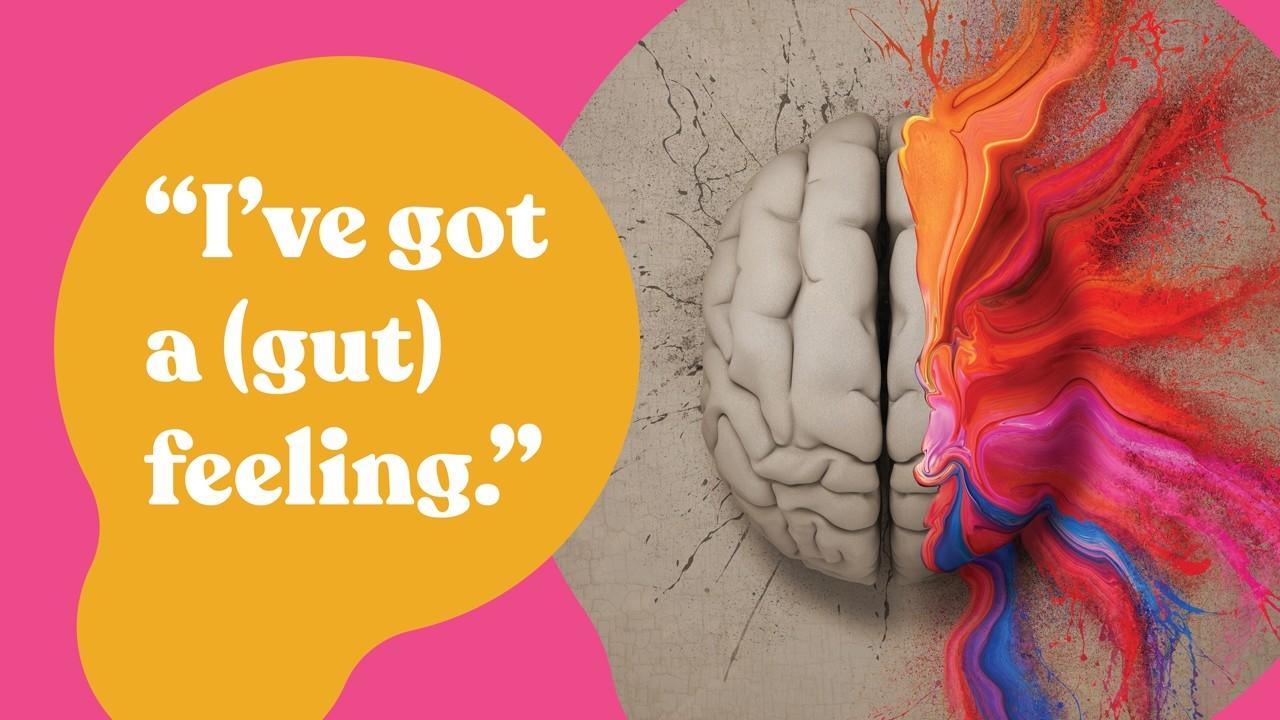I'VE GOT A (GUT) FEELING

I grew up in a family surrounded by a lot of woo woo. My Auntie was a medium (tv fame no less) and every weekend as my dad drooled over the Page 3 girl in the Daily Mirror, my mum and I would salivate over the horoscope predictions. When I entered the world of marketing & PR, I began to understand the role that data played in decision making, and I learned that just because you believe something, doesn’t make it true. And then I met (and married) a hardened sceptic, so now I question everything!
There’s one thing that I know to be true however which, until now, hasn’t been proven. It’s known as ‘gut feeling’ or ‘intuition’. Ever since I started living independently at aged 16, I always consulted my gut on big life decisions. It’s rarely betrayed me, aside from perhaps boys, but I blame hormones for that!
I’ve built ‘gut feel’ into several of my business processes and in some instances, it’s been met with a few raised eyebrows. Although, if you’re going to employ a DoGoodologist, you’d expect a bit of whimsy, no?
Enter – the wonders of neuroscience! Intuition or gut feelings are the result of a great deal of processing going on in the brain. Our brains are constantly gathering and comparing incoming sensory information, storing away with existing & past experiences, to predict what comes next. It’s a little like the predictive text on your smart phone – but much smarter & more accurate! Scientists call this the ‘predictive processing framework’[1].
The brain is always primed to deal with any situation as optimally as possible. When a mismatch occurs, your brain updates its cognitive models, and it happens automatically and subconsciously, yet to reach your conscious awareness.
Has anything like this ever happened to you? You’re happily driving along listening to the radio, when you suddenly, for no rational reason, you get the urge to slow down. A minute later, you watch an accident happen ahead of you in slow motion?
In psychological literature, intuition is explained as automatic, fast & subconscious, whereas analytical thinking is slow, logical, conscious, and deliberate. Ideally when making important decisions, you’d use both[2]. But in this fast-changing world, we are often required to make decisions without the luxury of deep thinking, contemplation, or data.
Some of the great scientists and astronomers (astronomers not astrologers!) have made incredible breakthroughs by starting with an innovative and intuitive hypothesis, which is later validated through rigorous testing & analysis.
The upshot is: gather your data, do your research but don’t ignore that inner voice, that voice has earned its right to speak, from its many years of experience. Be careful of cognitive bias however as they can really stuff things up! Here’s a great article on how to detect the most common ones – including the band-wagoning effect, the ostrich effect, and the blind-spot.
This is particularly relevant when non-profits are making decisions about which corporates and brands are a good fit for their organisation. The BePartnerReady.com® program has a robust process for identifying, cataloguing, and researching Corporate Suspects and Prospects based on a relevant criteria. However, as you hone the list down to a handful of Hot Prospects, it’s important to trust your gut – or as the ONR[3] call it – your ‘spidey sense’.
Hailey Cavill-Jaspers
[1] https://www.cambridge.org/core/journals/behavioral-and-brain-sciences/article/whatever-next-predictive-brains-situated-agents-and-the-future-of-cognitive-science/33542C736E17E3D1D44E8D03BE5F4CD9
[2] https://onlinelibrary.wiley.com/doi/abs/10.1002/bdm.1903
[3] US Office of Naval Research https://www.onr.navy.mil/en/Media-Center/Press-Releases/2014/ONR-studies-intuitive-decision-making.aspx

